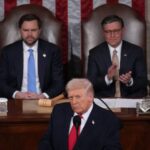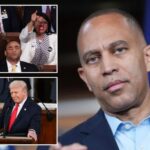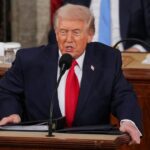
If Elon Musk tweets it, is it true?
This is more than a rhetorical question this week with Musk on the stand in a federal courtroom in San Francisco to defend against a class-action claim that he deceived shareholders by tweeting that he had funding locked up at $420 per share to take Tesla private.
As Bloomberg reported on Monday, in his first minutes on the witness stand Friday, the renowned entrepreneur and prolific Twitter user offered a remarkably modest assessment of his influence on the social media network that he now owns: “Just because I tweet about something doesn’t mean people believe it or will act accordingly.”
Yet to place this in its correct historical context, Musk has publicly embraced the Latin phrase “vox populi, vox dei” since becoming the owner of Twitter.
He first used the phrase — meaning “the voice of the people is the voice of God” — when asking Twitter users whether former President Donald Trump should be reinstated to the platform. At the end of a timed Twitter poll, Musk tweeted, “The people have spoken. Trump will be reinstated. Vox Populi, Vox Dei.”
If the voice of all the people is determinative of outcomes on Twitter, the voice of the owner of the platform would also be meaningful, as would the voice of any major Twitter influencer, including an active user who runs the world’s dominant electric car company.
These logical disconnects have the potential to really hurt Musk at trial. When Musk tweets, people listen.
Parenthetically, part of the reason why people believe what they read on Twitter is that they often don’t actually read it. As a 2018 MIT study indicated, “falsehood diffuses significantly farther, faster, deeper, and more broadly than the truth, in all categories of information, and in many cases by an order of magnitude.”
In other words, we believe what is written and referenced on Twitter to the extent that we often communicate it to others through retweets, quote tweets and likes, even if we haven’t read the content. That should be a little scary, especially given that the findings of this study would be amplified today compared to 2018.
Did Musk deceive Tesla shareholders?
Yes: 0% (0 Votes)
No: 100% (10 Votes)
Part of Musk’s defense in his trial is that his tweets were simply a form of shorthand — essentially recording present sense impressions. This won’t hold water in court because if it does, no statement we make in public on a social media platform can ever be used as evidence. The reality in 2023 is that what we tweet holds the same weight as what we say or communicate in other, more traditional forms. For us to tweet something and say that we didn’t mean it is becoming far more of a stretch.
Any hope that Musk had of distancing himself from the tweet at issue vanished on Monday afternoon when he made this admission in court:
This feels like a big concession from @elonmusk : “I mean, I expected that there (would) probably be some increase in the stock price — seems likely. If you say that you’re considering taking a company private or acquiring a company, … there is going to be some premium.”
— Patrick McGee (@PatrickMcGee_) January 23, 2023
It would be surprising if Musk wasn’t given solid counsel by his attorneys on Monday night to settle this case.
As attorney Tim George points out, “It will be difficult for a jury to accept that a high-profile CEO intentionally tweeted critically important business information yet did not believe that people would rely upon what was expressed in the tweet.”
This is particularly important given the context the judge presiding over the case, U.S. District Judge Edward Chen, shared with the jury on Friday. Chen instructed jurors that they could consider the facts of Musk’s tweets to be false and that it would be up to them to decide whether these false tweets were an attempt by Musk to deceive investors.
It’s important to remember that the SEC already sanctioned Musk over the tweets in question. In 2018, he was fined $40 million and had to step down as the Tesla chair.
While that settlement has no bearing as legal precedent in this shareholder class action, logic should dictate to Musk and his counsel that unless they have compelling evidence that the August 2018 tweets did not damage Tesla shareholders, there’s no reason to expect a better result in this trial.
The views expressed in this opinion article are those of their author and are not necessarily either shared or endorsed by the owners of this website. If you are interested in contributing an Op-Ed to The Western Journal, you can learn about our submission guidelines and process here.







